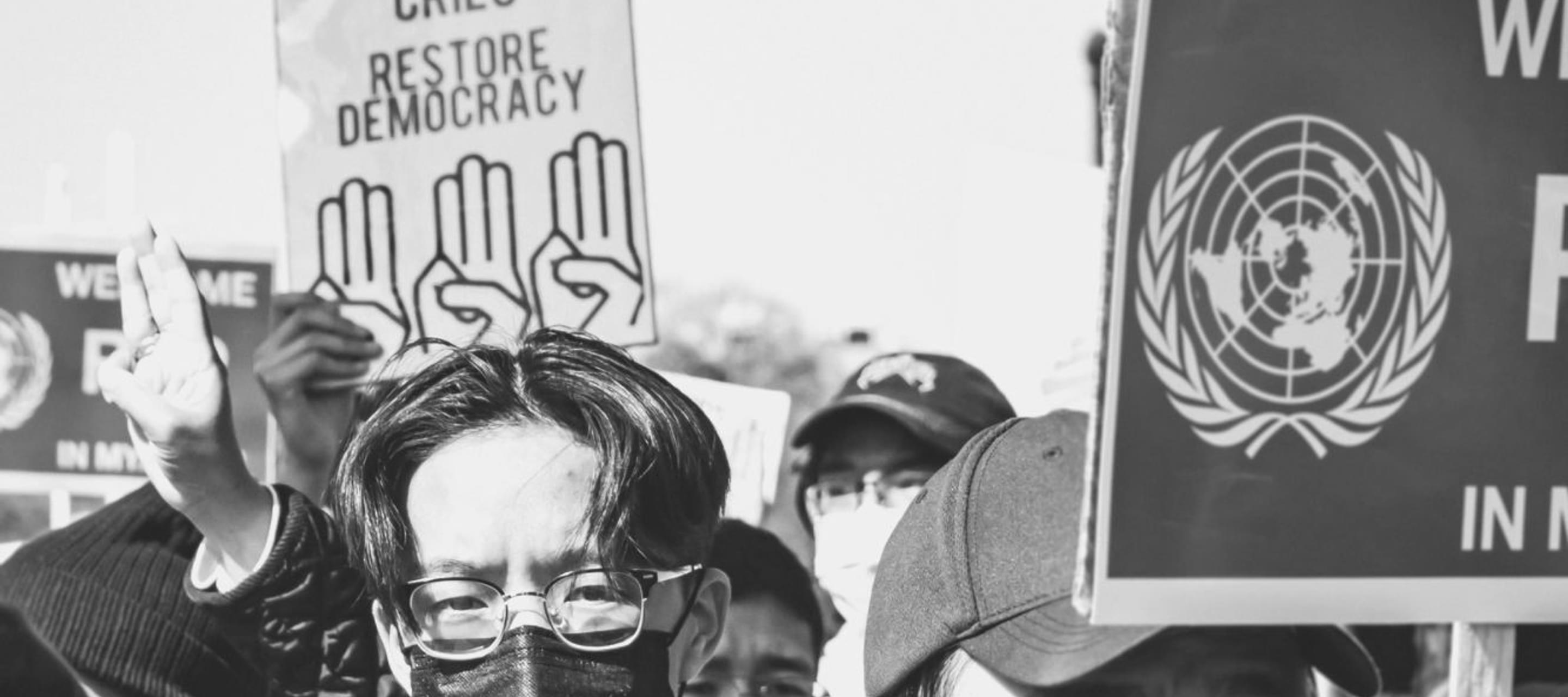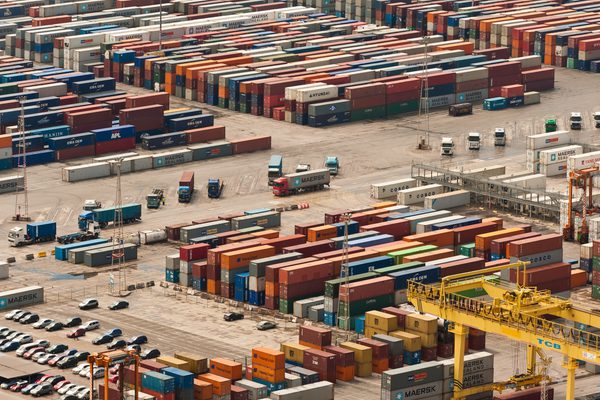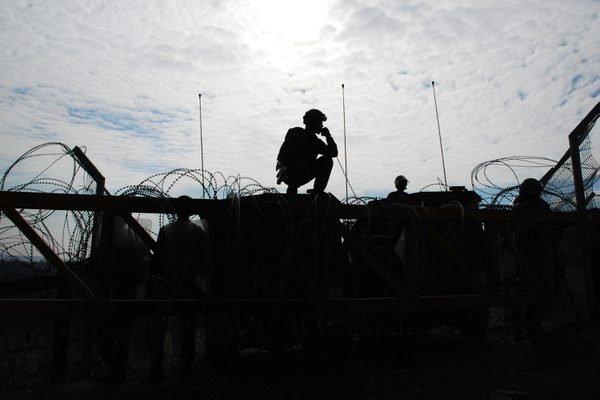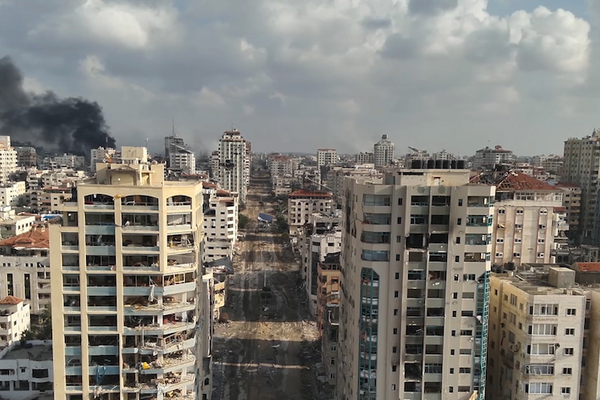Staying or Leaving Myanmar Part 2 – Reflections on the Human Rights Approach One Year on from the Coup
1 February 2022

Today marks the one-year anniversary of the military coup in Myanmar as the country falls into what the UN High Commissioner for Human Rights has called it a ‘civil war’, and urged companies and governments to do more. The decision by the Norwegian telecom operator Telenor, and more recently, French oil major Total, to leave Myanmar has drawn sharp focus on whether companies can operate in countries with widespread human rights violations. What criteria should guide their decisions should they choose to stay or leave?
One year ago, the democratically-elected Parliament was not allowed to convene, and the military arrested the President, the state counselor, and many parliamentarians. In the year since, Myanmar has seen widespread protests led by the Civil Disobedience Movement. More than 1,000 civilians have died, and frustrated at military’s refusal to engage with peaceful protesters, some members of the opposition have turned to armed struggle, including in coordination with existing ethnic armed organisations. While many countries have imposed sanctions on Myanmar, the Government has so far refused to budge, declaring its own time-table when it might restore democracy.
UNGPs are clear in setting out that companies should mitigate or eliminate harm where they cause, contribute to, or are linked with human rights abuses.
In the year since the coup, a few companies have decided to end their operations in Myanmar and leave. Their reasons are different. Whether such decisions will help restore democracy in Myanmar is difficult to tell, some think it unlikely. Whether companies should base their decisions to leave or remain on how it might influence a government can also be a controversial question, in the absence of clearer criteria. The UN Guiding Principles on Business and Human Rights offers three categories to understand the relationship between any business and human rights harms (cause, contribution and direct linkage) but the standard under international criminal and humanitarian law is one of avoid complicity in the abuses of the state or other armed entities. The UN Guiding Principles and humanitarian law have a nuanced difference in how they view impacts. UNGPs are clear in setting out that companies should mitigate or eliminate harm where they cause, contribute to, or are linked with human rights abuses. Humanitarian law and international criminal law has a different standard – of aiding and abetting, and known or should have known, which indicate that anyone, companies included, face the risk of prosecution if they are likely to be complicit in grave human rights abuses. Those grave abuses include genocide, crimes against humanity, war crimes, torture, disappearances, summary executions, forced displacement, and so on. In the absence of clearer guidance, companies have to make their own assessment about what they are doing, what its impacts are, and their proximity to, or linkage, with those abuses, and arrive at a decision: will they be complicit?
Some civil society groups, in Myanmar and abroad, are appalled, because they expected Telenor to fight the good fight, and they do not believe the Lebanese operator would be as respectful of human rights as Telenor aspired to be.
Telenor decided to leave because it was asked to install technology that would have enabled wider surveillance in Myanmar, and doing so would have put its operations at odds with European Union laws. Telenor could have sought an exemption from those sanctions, but Telenor also adheres to human rights principles, and took the decision to leave in order to avoid being accused of complicity. Total had initially decided to stay in Myanmar, pointing out that it provided nearly half the energy needs of the city of Yangon, and that Myanmar was not crucial to its business. But following sustained campaigning from civil society groups, it too decided to leave.
It is clear that Myanmar will continue to have telecom services – there are three other operating companies in Myanmar and Telenor has agreed to sell its business to a Lebanese group, although the military is attempting to insert a compliant local crony company into the package as majority shareholder. Some civil society groups, in Myanmar and abroad, are appalled, because they expected Telenor to fight the good fight, and they do not believe the Lebanese operator would be as respectful of human rights as Telenor aspired to be. Likewise, Yangon will continue to get electricity, as another oil major will replace it, although it is extremely unlikely to be an oil company that adheres to international standards such as the Voluntary Principles for Security and Human Rights or is a member of the Extractive Industry Transparency Initiative.
The Complicity Question around Staying or Leaving a High-Risk Country
What is a company to do when faced with such a dilemma? The situation becomes acute when the human rights abuses committed are grave, such as mass killings, including crimes against humanity, widespread torture, unlawful executions, disappearances, sexual violence, mass detentions without trial of peaceful protestors, forced displacement, and so on. For a company, being associated with any of these carries high risk of complicity and possible prosecution in future.
That is the crux of the dilemma for companies.
By leaving, companies may be able to distance themselves from potential abuses in future, as well as perceptions of guilt by association. But it may not change the situation on the ground. In fact, it might worsen, if companies less committed to human rights replace these companies.
By remaining, companies will likely take a reputational hit for their continued association with the government and its human rights record. Which is why in this context it is important to examine what the role of a company is.
Armed conflict raises specific operational challenges, and in order to protect staff – expatriate and local – and property and assets, as well as suppliers, a company may feel compelled to suspend operations. A coup which turns violent with an outbreak of civil war, which is not an unlikely prospect in Myanmar, is another such instance. But the presence of an undemocratic or authoritarian government, or a government that violates human rights, makes such decisions harder. There are many governments that periodically hold elections that are by and large free, but once elected, pass draconian laws and shrink the public space for civil society to operate.
Learnings from companies staying and leaving apartheid South Africa.
Companies that are More Visible are Likely to be Bigger Targets. The South African Example is Instructive.
During the apartheid years (1948-1994), companies that traded in South African products that were visible in supermarkets (wines, agricultural produce such as food) were more likely to be targeted.
Companies that advertised, which had presence on the High Street or Main Street, and which made consumer products (such as Polaroid, Barclays Bank, auto companies) were more likely to get targeted, compared to electrical equipment manufacturers that sold generators or helped build or maintain South African infrastructure. Companies that were likely to face consumer or investor action or campaigning were more susceptible, compared to those which were not. Companies based in countries where the local civil society demanded corporate accountability (such as Norway and France, in the case of Telenor and Total, for instance) were more likely to act than companies from other countries which also operate in Myanmar, such as India, Thailand, Singapore, Japan, or China.
The UN Working Group for Business and Human Rights calls upon companies to undertake ‘heightened due diligence’ in situations of armed conflict, but does not offer specific advice on when or whether a company should stay or leave.
What it means is that corporate action would be disunited, and raise the risk of companies with different, or poorer records of respecting human rights might replace the ones who leave. This does not mean that the companies that leave have a superior record – only that they were more vulnerable to pressure for various reasons. Protecting reputation is a major driver, but it should never be the sole reason – one of the main reasons ought to be avoiding complicity. If a company causes, contributes to (or benefits from), or is linked with grave human rights abuses, it must take immediate steps to prevent or mitigate harm, and doing so may require withdrawal in situations where companies can exercise little or no meaningful leverage by staying.
Should Companies Stay or Leave Myanmar? There is No Simple Answer
The Red Flags initiative, which offers instances where companies have been prosecuted under criminal laws or sued under civil laws in high-risk zones, shows instances in armed conflict or near-total breakdown of law and order. It does not suggest that each time there is a coup companies should pull out.
A guidance note by the UN Working Group for Business and Human Rights calls upon companies to undertake ‘heightened due diligence’ in situations of armed conflict, but does not offer specific advice on when or whether a company should stay or leave.
If a company chooses to remain, it must pay particular attention to its own actions and the likely consequences of those actions. Does it increase the risk of complicity?
The Working Group’s guidance builds on the UN Guiding Principles on Business and Human Rights, whose commentary specifically guides companies to demonstrate they are doing what is expected of them. One, “its own ongoing efforts to mitigate the impact and be prepared to accept any consequences – reputational, financial or legal – of the continuing connection,” and two, businesses are “expected to respect the principles of internationally recognized human rights to the greatest extent possible in the circumstances, and to be able to demonstrate their efforts in this regard,” and “to ensure that they do not exacerbate the situation.” It means conducting the ‘heightened’ assessment, ‘to know,’ and then to demonstrate their actions to ‘show’ that they are taking appropriate action to respond to their risks and impacts.
So the question is never as simple as staying or going, but also ‘how you stay’ and ‘how you go’.
Actions for Companies to Consider when Exiting a Country
However, leaving is not a simple decision either. A range of actions are needed to exit “responsibly”. Companies that have faced this decision in the Myanmar context have undertaken some of these actions to varying degrees, such as:
- Offering outplacement services for its staff so that they can find other jobs (if they do not wish to continue to work for the company that acquires the business);
- Protecting the well-being of employees (including families of employees who may have taken part in the civil disobedience movement and been arrested); and
- Considering the possibility of maintaining presence in the country through philanthropic programmes to maintain direct links with the people.
If a company chooses to remain, it must pay particular attention to its own actions and the likely consequences of those actions. Does it increase the risk of complicity?
Companies that continue to do human rights impact assessments and maintain dialogue with the local civil society will have fewer surprises.
And again, take steps to mitigate harm. It must challenge the government (as Total and Telenor did, through their statements expressing distress over the Rohingya crisis earlier, and over the coup last year) if it is called upon to act in ways that violate international standards. And it must resist paying specific levies, taxes, or duties, which can be directly linked with abuses (such as an additional tax to finance conflict).
Myanmar is not the only country raising the stay or leave question. Whether to operate in disputed territories, in territories under occupation, regions where forced labour is rampant, which are riven with conflict, and where human rights violations are persistent are all challenges companies face today on all continents. Companies that continue to do human rights impact assessments and maintain dialogue with the local civil society will have fewer surprises. A conflict or a coup – that is an unusual time and forces a company to reassess its position. It can never be business as usual at such a time.
Photo Credit: Gayatri Malhotra on Unsplash





